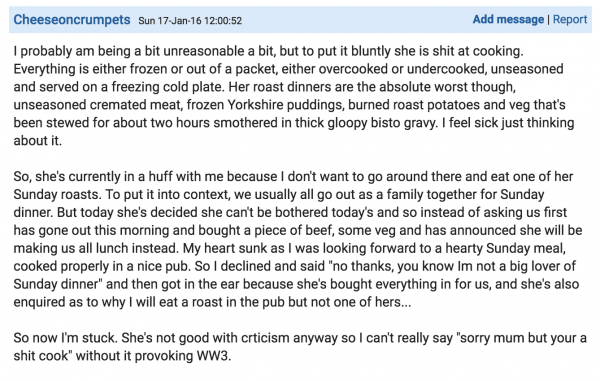If your children aren’t complaining about the seemingly poisoned, revolting food you’ve made after a long day, how do you even know you’re a parent?
Kids complaining about the food you lovingly prepare for them and force them to eat for your pure evil enjoyment, totally unrelated to giving them sustenance to function, is a common experience 0f parents of young children. But what advice do you give to an older child who wants more control over their diet, yet is held hostage by a parent still prepared to actually cook for them?
This is the situation Bec Sparrow, host of Mamamia podcast Ask Me Anything, was faced with, when she was asked by a young listener;
“How do I tell my mum that I don’t like her cooking?”
Bec Sparrow offers advice to teenage girls on Ask Me Anything. Post continues…
Well, as Bec wisely suggests, if you value your life, you don’t.
Bec advises that this particular listener proceed with caution. She explains that for a lot of parents, it’s exhausting to come up with something that the whole family will like every night.
“I’m a mum, I have three kids, and I hate cooking. It is the bain of my life having to serve up dinner every night.”
She explains that preparing meals isn’t necessarily something many parents want to do, but it’s more of a necessary chore. So if the cuisine isn’t up to the standard a child, who’s obviously old enough to call to ask for advice, wants, they’re probably old enough to effect change at a grassroots level: a.k.a. cook their own dinner.




Top Comments
I find an exaggerated sigh and an eye-roll normally does the trick.
'' I'll come over early and help cook, why should you have all the expense AND do all the work?''.
Sorted.